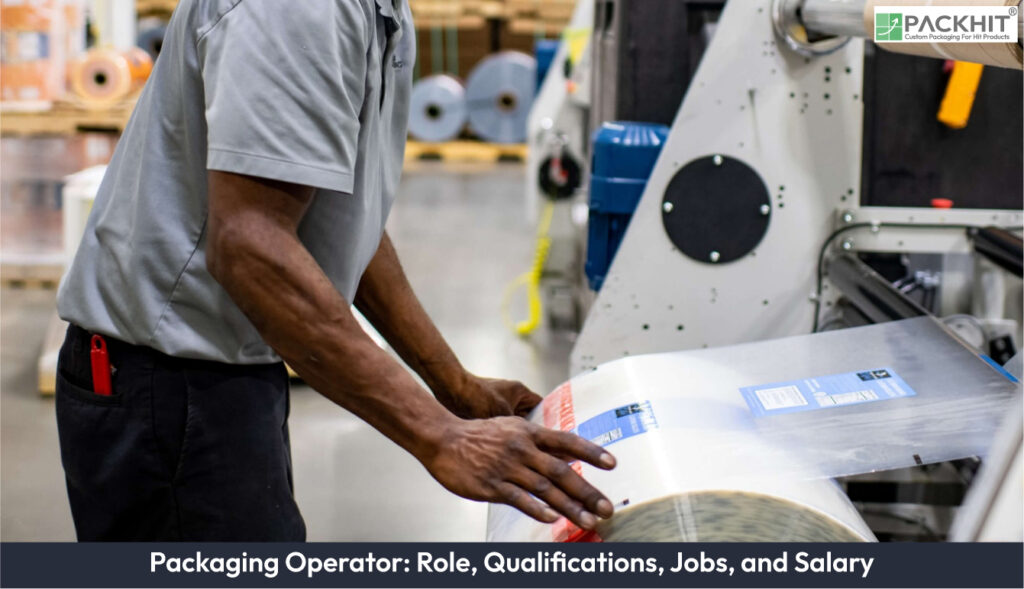A Packaging Operator is a critical role within manufacturing and production environments, responsible for operating, monitoring, and maintaining machinery used in the packaging of products. Their duties include setting up and calibrating equipment, inspecting packages for quality, performing routine maintenance, and documenting production data. They also ensure workplace safety and cleanliness. To become a Packaging Operator, a high school diploma and on-the-job training are typically required, though mechanical skills and certifications (like OSHA) can boost employability. Salaries range from $30,000–$45,000 annually, with higher wages in sectors like pharmaceuticals and food. Job growth remains steady due to the need for skilled operators in automated systems. Vacancies are common across industries, and strong resumes should emphasize mechanical skills, experience, certifications, and achievements in efficiency or quality improvements.
What Does a Packaging Operator Do?
A packaging operator oversees the operation of machinery designed to package products in various forms, such as bottles, boxes, or pouches. Their primary responsibilities include setting up equipment, calibrating machines to meet specific packaging requirements, and monitoring operations to ensure consistency and efficiency. They are also tasked with inspecting finished packages for defects, ensuring that they meet quality standards before distribution.
In addition to machine operation, Packaging Operators perform routine maintenance to prevent downtime and troubleshoot issues that may arise during production. They are responsible for maintaining a clean and organized workspace, adhering to safety protocols, and documenting production metrics such as output rates, downtime, and material usage. Depending on the industry, they may also handle specialized tasks, such as labeling, sealing, or sterilizing products.
Key Responsibilities
- Operating and monitoring packaging machinery to ensure optimal performance.
- Inspecting products and packaging for quality assurance.
- Performing routine maintenance and troubleshooting equipment issues.
- Documenting production data, including output rates and material usage.
- Adhering to safety and hygiene standards in compliance with industry regulations.
How to Become a Packaging Operator?
Becoming a Packaging Operator typically requires a high school diploma or equivalent, along with on-the-job training. While formal education in mechanical or industrial technology can be advantageous, most skills are acquired through hands-on experience. Employers often seek candidates with a strong aptitude for machinery, attention to detail, and the ability to work in fast-paced environments.
Required Skills and Qualifications
- Basic mechanical skills for operating and maintaining machinery.
- Attention to detail is required to identify defects and ensure quality standards.
- Ability to follow safety protocols and standard operating procedures.
- Physical stamina to perform repetitive tasks and lift heavy materials.
- Proficiency in documenting production metrics and reporting issues.
Training and Certifications
While formal certifications are not always required, some employers prefer candidates with certifications in industrial safety, machine operation, or quality control. Training programs offered by technical schools or industry associations can provide foundational knowledge in packaging technology and machinery operation. Additionally, certifications such as OSHA (Occupational Safety and Health Administration) compliance training can enhance employability.
Packaging Operator Salaries and Job Growth
The salary of a Packaging Operator varies based on factors such as industry, location, and level of experience. In the United States, the average annual salary for a Packaging Operator ranges from $30,000 to $45,000, with entry-level positions starting at approximately $25,000 and experienced operators earning upwards of $50,000. Industries such as pharmaceuticals, food and beverage, and consumer goods often offer higher compensation due to the specialized nature of their packaging requirements.
Job growth for Packaging Operators is closely tied to trends in manufacturing and automation. While advancements in technology may reduce the demand for manual labor, the need for skilled operators to manage and maintain automated systems remains strong. The Bureau of Labor Statistics projects steady demand for Packaging Operators, particularly in industries that prioritize high-volume production and stringent quality standards.
Packaging Operator Job Vacancies
Job opportunities for Packaging Operators are abundant across various industries, including food and beverage, pharmaceuticals, cosmetics, and consumer goods. Employers often seek candidates who can adapt to different packaging systems and work effectively in team-oriented environments. Common job titles include Packaging Machine Operator, Production Line Operator, and Assembly Line Technician.
Manufacturers frequently advertise job openings on online job boards, company websites, and industry-specific platforms. Candidates with prior experience in manufacturing or machine operation are often preferred, though entry-level positions with on-the-job training are also available.
Tips for Crafting a Packaging Operator Resume
A well-crafted resume is essential for securing a position as a Packaging Operator. Highlighting relevant skills, experience, and certifications can significantly improve your chances of being hired. Key sections to include are:
Skills and Competencies
- Proficiency in operating and maintaining packaging machinery.
- Knowledge of quality control standards and inspection techniques.
- Familiarity with safety protocols and regulatory compliance.
- Ability to troubleshoot and resolve equipment issues efficiently.
Work Experience
Detail your previous roles in manufacturing or packaging, emphasizing responsibilities such as machine operation, quality assurance, and production documentation. Quantify achievements where possible, such as improving production efficiency or reducing downtime.
Certifications and Training
Include any relevant certifications, such as OSHA compliance, forklift operation, or specialized training in packaging technology. These credentials demonstrate your commitment to professional development and industry standards.

